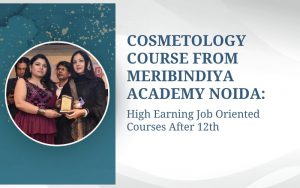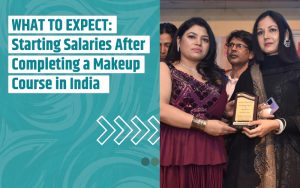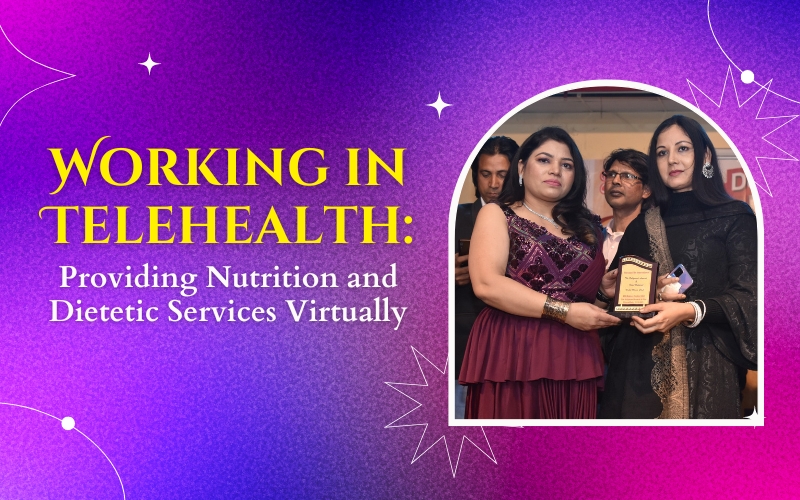We live in a time where we have access to technology that can connect us to people, places and things around the world. Using telehealth services is no different. Telehealth allows you to provide nutrition and dietetic services virtually, which can be done by using video conferencing, teleconferencing or other means of communication.

If you’re considering taking up a Nutrition & Dietetics course then this article will help guide your decision as it explores both sides: how to utilize telehealth for those wishing to pursue a career in nutrition or dietetics as well as potential benefits for clients who need the services provided by such professionals.
What is Telehealth?
Telehealth is the use of technology to deliver health care remotely. It can be used in many different ways, including by providing nutrition and dietetic services virtually.
Telehealth allows you to work from home or anywhere else you want, with no commute time or office politics. In addition, because it’s an asynchronous process (meaning there isn’t a set time for communication), telehealth allows you more flexibility with your schedule than traditional face-to-face visits would allow.
Taking up a course in Nutrition & Dietetics
If you’re interested in pursuing a career as a nutritionist or dietitian, it’s important to understand the difference between the two. With a nutrition course, you can become a nutritionist who provides advice on food and lifestyle choices based on scientific evidence. A dietitian provides similar services but also works with people who have health problems such as diabetes or obesity.
The MeriBindiya Diploma in Nutrition and Dietetics course is designed to give you a profound knowledge of nutrition and dietetics. With this course, you can practice and be successful in this field. The course covers catering to all age groups from children, adolescents, pregnant women and all adults.
What will you learn in Diploma in Nutrition & Dietetics
With thee Diploma in Nutrition and Dietetics course you will learn about nutrition, dietetics and food science. You will also learn about human health and illness. You’ll study the human body and how it works, including what happens when you get sick or injured; how your organs function; the role of various cells in your body (such as bone marrow cells); how our senses help us to stay safe; why we need oxygen; how our muscles work together with our bones to give us strength.
You will also learn about nutrition: what foods contain nutrients that are good for us–and which ones don’t–as well as how much energy is needed by each person in order for them to live an active life without becoming overweight or obese (this may sound like a simple task but sometimes there are factors such as poor diet choices leading up until adulthood). Taking up an advanced Master’s in nutrition and dietetics course will further strengthen your expertise on the subject.
How to Use Telehealth to Provide Nutrition Services?
Telehealth is a technology-based approach to providing health care services remotely, using audio and video technology. It offers many advantages over traditional in-person visits, including lower costs and increased access to care.
Honeymoon Cruise: Pros and Cons
As a professional who has completed the fitness and nutrition courses, you can offer telehealth services to provide nutrition services, dietetics services and both nutritional and dietetic services.
How to Use Telehealth to Provide Dietetic Services
The role of a dietitian is to provide nutrition services that can improve the health of patients. Dietetics is an integral part of the health care system, as it helps to prevent and treat diseases through proper nutrition. Dietitians are trained to evaluate nutritional needs based on age, gender, overall health status and medical conditions such as diabetes or heart disease. They also teach patients about healthy eating habits so they can make healthier food choices in their daily lives.
The importance of providing dietetic services remotely cannot be overstated: Telehealth allows you to reach more people who need help with their diets than ever before! In addition to being able to see more patients without traveling all over town (or even across state lines), this technology makes it easier for those who live far away from urban centers where there aren’t many options available locally when it comes time for treatment plans involving telemedicine.”
Telehealth is a great way to provide nutrition and dietetics services
Telehealth is a great way to provide nutrition and dietetics services. Telehealth can be used as an effective way to reach rural populations that may not have access to specialized healthcare professionals who can help them with their health needs, including those related to nutrition and dietetic services.
Hairstylist Courses and Training | Become a Hairdresser
Tele Farms are also useful when it comes to providing care for people who are housebound or have mobility issues, since they allow the patient’s medical information to be collected remotely via phone call or video chat.
Conclusion
We hope that this blog has given you a better understanding of what it means to work in telehealth and how it can benefit your career as a nutritionist or dietitian. We also hope that you are inspired to take up one of our online diploma courses in nutrition & dietetics!
If you are passionate about having a career in beauty industry and are looking forward to enroll in a professional beauty courses that include makeup, nail art, cosmetology, hair stylist, hair dresser, micro blading and much more get in touch with MeriBindiya International Academy. Enroll in our beauty courses that best suits your interest and kickstart your career in the beauty industry.
MERIBINDIYA INTERNATIONAL ACADEMY































